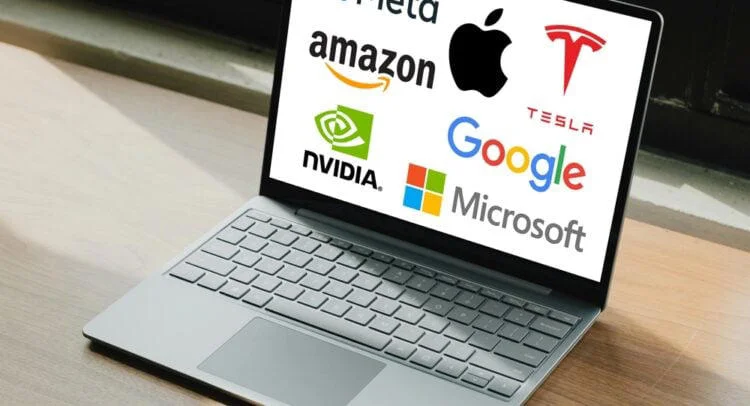Real-Time BNB Signal Analytics
Real-Time BNB Signal Analytics
So, Apple drops its quarterly numbers, the stock wiggles around like a hooked fish before shooting up 5%, and the entire financial press loses its collective mind. A beat on revenue! A beat on earnings! All is well in Cupertino!
Give me a break.
We’re all supposed to pop the champagne because they pulled in $102.5 billion instead of the $102 billion the geniuses on Wall Street guessed? This is the game we’re playing now? Rounding errors as cause for celebration? Look, I get it. The headline numbers are shiny. Revenue up 8%, EPS up 13%. Tim Cook gets to go on the conference call, do his calm, folksy CEO routine, and talk about a bright future. But if you actually bother to look under the hood of this thing, you see the engine is starting to sputter.
The iPhone, Apple’s golden goose, the product that pays for all the minimalist white office furniture and spaceship campuses, missed its target. Not by a lot, just a few hundred million bucks ($49.02 billion vs. an expected $49.33 billion), but it’s a miss. For a company that operates with the precision of a Swiss watch, a miss is a miss. It’s a crack in the facade. It tells you that the magic upgrade cycle, the one where millions of people line up to buy a slightly better camera, might finally be losing its spell.
And that brings us to the real mess: China.
Sales in China dropped. Not a little. A 4% year-over-year decline. This isn't just some random market; it’s one of their biggest and most important growth engines. And what’s the official explanation from on high? Tim Cook blames a "supply constraint."
A supply constraint. Seriously? That’s the line they’re going with? It’s the corporate equivalent of "the dog ate my homework." It’s a beautifully vague, impossible-to-disprove excuse that gets trotted out anytime the numbers don't look right. Let’s be real for a second. Is it really a supply issue, or is it a demand issue, where homegrown competitors like Huawei are eating Apple’s lunch with devices that are just as good, if not more innovative, for a better price? What are the odds that the "constraint" is actually Chinese consumers choosing something else?

This whole earnings report feels like a magic trick. Apple is the master magician, waving the big, flashy revenue numbers in your face with one hand. "Look! A $4 trillion market cap! Look! Our best holiday quarter ever is coming!" But you’re not supposed to look at the other hand, the one fumbling the cards marked "iPhone sales" and "China." The China numbers are a problem. No, a "problem" is too soft—it's a flashing red warning light on the dashboard of a car speeding toward a cliff. Then again, they did just hit that insane market cap. Maybe I'm just yelling at clouds while they're busy printing money. It just ain't sustainable, though.
They’re promising a return to growth in China next quarter. Offcourse they are. What else are they going to say? "Yeah, we’re getting hammered over there, no idea when it’ll stop"? The `aapl stock price` would crater. It's all part of the performance.
When the present looks a little shaky, what do you do? You start selling the future. Hard. And that’s exactly what Apple did on their call.
First, there’s the AI pivot. Suddenly, after years of being a laggard while companies like Microsoft (`msft`) and Nvidia (`nvda`) were building empires, Apple is "increasing our investments in AI." They’re spending more on capex, they’re working on it, they promise. It’s coming. Someday. Just like that "overhauled Siri" that’s been delayed but should, fingers crossed, launch next year. We’ve been hearing about the new and improved Siri for what feels like a decade. It’s become tech’s version of vaporware. How many times can you promise a revolution before people realize you don’t even have a plan?
It’s a desperate attempt to join the conversation, to convince investors that they aren’t being left in the dust in the biggest tech race of our generation. When you see the `nvidia stock` price, you know what the market values right now, and it’s not just selling shiny rectangles.
Then there’s the iPhone 17. After just one week of sales data, Cook says the phone is "resonating around the world." Resonating? What does that even mean? It’s a meaningless corporate buzzword designed to sound profound. You could say a tuning fork resonates. You could say a well-told story resonates. You can’t say a phone "resonates" based on seven days of early adopter sales unless you’re just spewing PR nonsense, and I just…
This is the core of the Apple strategy now. The actual products are incremental. The real innovation is in the marketing narrative. They’ve shelved the ambitious Vision Pro revamp to focus on smart glasses—another product of the future that may or may not ever exist in a meaningful way. They guide for a monster holiday quarter, with 10-12% revenue growth, calling it their "best quarter ever." It’s a bold promise, a classic move to shift the focus from a lukewarm report to a hypothetical, glorious future. The question is, how long can you keep selling tickets to a show that never quite starts?
Look, I’m not saying Apple is doomed. The company is a financial juggernaut with a ridiculously loyal customer base. They make fantastic, reliable products. But this earnings report shows the formula is wearing thin. The story they’re telling—the one of unstoppable growth and endless innovation—is starting to diverge from the reality of the numbers. They beat estimates by playing a game of lowered expectations, and then immediately tried to distract everyone with promises about next quarter and next year. It’s a masterful performance in narrative control, but it feels fragile. The magic is still there, but it’s fading.